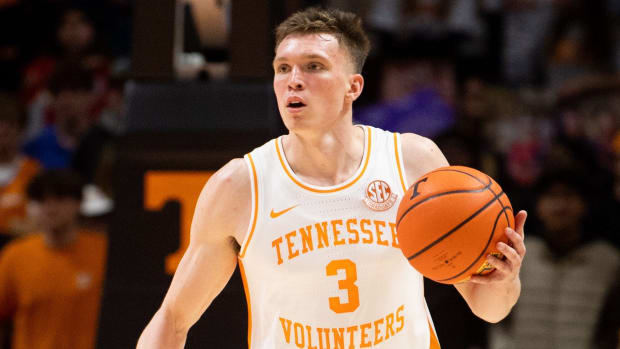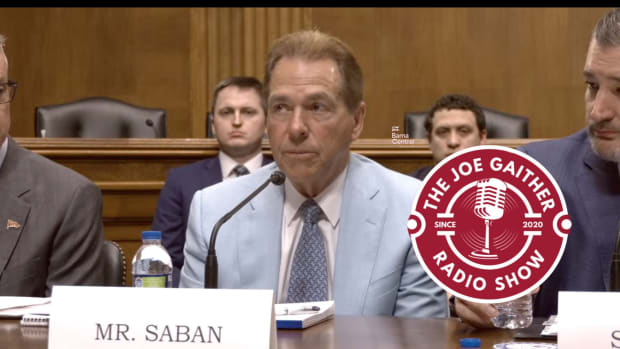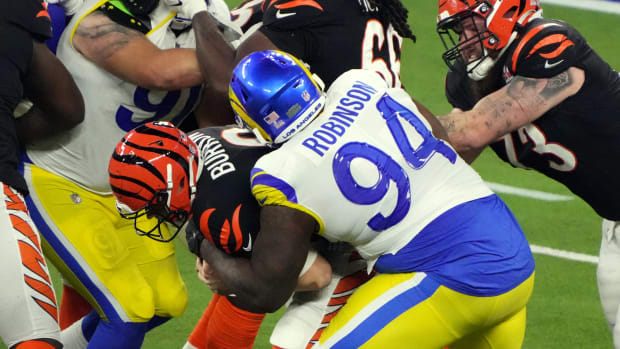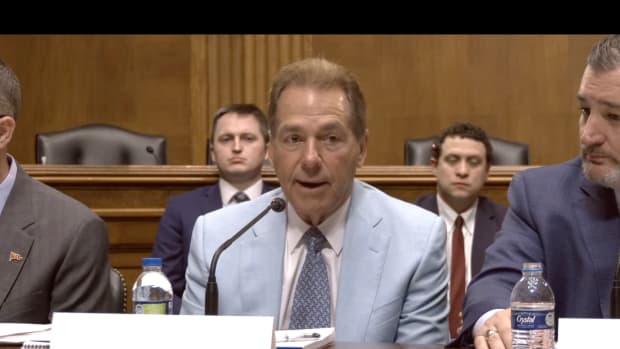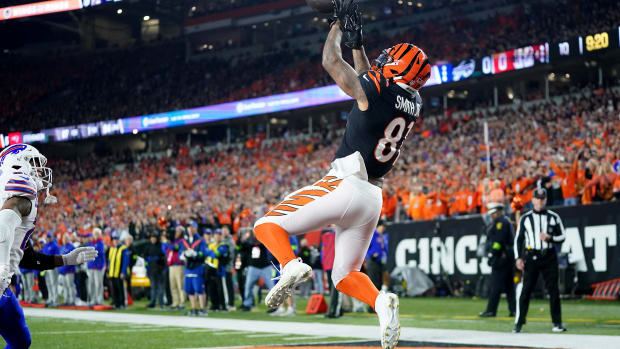Just A Minute: Supreme Court Wasn't Joking Around in Declaring Amateurism Dead
Cue the organ, please.
Ladies and gentlemen, thank you all for being here. Today we'd like to welcome you to this celebration of life for the concept of amateurism in collegiate sports. It did not go quietly, or gently, but came to end Monday afternoon at the hands of justice.
Specifically, it was the Supreme Court that did more than signal the beginning of the end with a landmark ruling in NCAA vs. Alston, in a case brought by Shawne Alston, a former West Virginia University running back, and other student-athletes.
It unanimously decided that the National College Athletic Association couldn't limit education-related benefits to student-athletes. We're talking about things like laptops, internships and graduate scholarships.
But the Court also signaled how it would view the rules specifying that athletes can't paid.
Justice Neil Gorsuch wrote the Court's primary ruling, and declared that while "the national debate about amateurism in college sports is important,” it is not the Supreme Court’s job to resolve it.
However, Justice Brett Kavanaugh wrote a concurrence, which is a separate opinion from the court's opinion, and flatly stated that "The NCAA is not above the law."
"The NCAA's business model would be flatly illegal in almost any other industry in America. Bottom line is the NCAA and its member colleges are suppressing pay of student athletes who collectively generate billions of dollars in revenues for colleges every year. Those enormous sums of money flow to seemingly everyone except the student athletes."
That's a statement from which the NCAA will never recover.
Where we all go from here is anyone's guess, especially with name, image and likeness laws set to go into affect in six states, including Alabama, on July. 1. The NCAA had turned to Congress for help, and appears to be scrambling to react to a decision it knew was coming. It appears to be as directionless as ever except when it comes to expanding the College Football Playoff.
Consequently, we may be going from nearly nothing being allowed in terms of student-athlete benefits to just about anything, which means just about everything will change.
What will happen to non-revenue sports?
What will happen to Title IX?
Was this also a mortal wound for the NCAA?
Might this be what finally leads to the biggest football schools breaking off and forming their own alliance?
No one knows because the NCAA wasn't proactive, and is now left seeing its very core unravel.
“The Supreme Court’s opinion today in the Alston case provides clarity as we move forward to provide additional educationally-related benefits to student-athletes,” SEC commissioner Greg Sankey said in a statement. “What also is clear is the need for the continuing evaluation of the collegiate model consistent with the Court’s decision and message.
“Our next step is to engage with our member institutions to consider the implications of the opinion delivered today by the Court and to continue our tradition of providing superior educational and competitive opportunities while effectively supporting our student-athletes.”
What we do know was that term student-athletes has a very different meaning now. Amateurism isn't just an outdated concept any more, but in the spirit of Monty Python's parrot is no more, has ceased to be and is bereft of life. It's actually been dead for a while, but was nailed to the perch in hopes of fooling everyone for as long as possible.
It was a friend, a crux and a tool of the NCAA, and lived long past its usefulness.
May it rest in peace.
